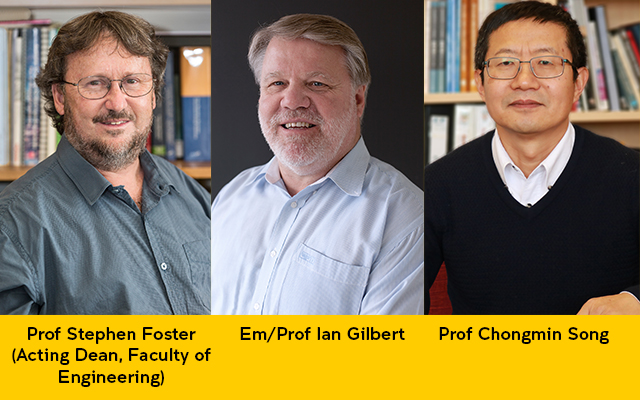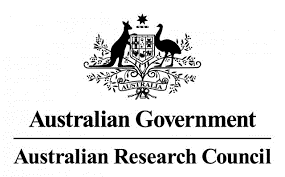Three CIES ARC Discovery Project 2020 grants awarded
 Three CIES ARC Discovery Project 2020 grants awarded
Three CIES ARC Discovery Project 2020 grants awarded
CIES researchers have won $1.2M in highly sought after 2020 ARC Discovery Project funds, announced in December 2019. The three successful projects involve many of the cutting-edge research areas of the Centre including computational mechanics, fibre reinforced and steel fibre reinforced concrete structures and important information for the development and refinement of industry standards.
Congratulations to Professor Stephen Foster, Professor Chongmin Song, and Emeritus Professor Ian Gilbert on their success. Professor Foster (Acting Dean, Faculty of Engineering) said, “As we know, ARC funding is extremely competitive with a success rate of just 23 per cent. I’m very pleased to say that the Centre has again done fantastically well!”
Topic: Mixed Mode Torsion-Shear-Bending Failure in SFRC Elements.
Chief Investigator: Professor Stephen Foster
DP200103764 - $384,481
Summary: In 2017 and 2018 the Australian Standards for the design of concrete bridges and structures were released; these are some of the first in the world, to include design procedures for steel fibre reinforced concrete (SFRC) in a comprehensive way. While rules have been introduced for shear and bending of SFRC girders, the rules exclude the use fibres to carry torsional moments. This study investigates the torsion-bending-shear interaction performance of SFRC members. The study will provide vital data needed for adoption by engineers and Standards bodies.
Topic: Time Dependent Behaviour of Fibre Reinforced Concrete Structures.
Chief Investigators: Emeritus Professor Raymond Ian Gilbert (CIES) and Dr Ali Amin (USyd)
DP200102114 - $411,161.00
Summary: The project aims to quantify the initial and long-term cracking and deformation of fibre reinforced concrete structures such as tunnel linings and slabs under sustained in-service loads and conditions. Concrete structures with and without conventional steel reinforcement and containing either steel or polypropylene fibres mixed in the concrete will be tested experimentally and modelled analytically and numerically. Expected outcomes are benchmark experimental data on structural behaviour under sustained loads, development of reliable simulation models and robust design procedures for the control of time-dependent cracking and deformation in fibre reinforced concrete, with reduced maintenance costs and more sustainable concrete structures.
Topic: Computational Fracture Analysis of Structures and Materials.
Chief Investigator: Professor Chongmin Song
DP200103577 - $430,601.00
Summary: This project aims to develop a computer simulation technique to address the safety of engineering structures. A novel numerical framework based on the scaled boundary finite element method will be developed to model the fracture process critical to assessing structural integrity. The expected outcomes of this project include an innovative technology for numerical simulation and improved capabilities to generate high-fidelity predictions of structural safety at minimum human efforts. The fully automatic and robust numerical tool developed in this project will help engineers and government authorities to perform safe and cost-effective design and management of engineering structures that are vital to modern economies.

About ARC Discovery: The Federal Government Australia Research Council ARC's Discovery funding schemes recognise the importance of fundamental research. A strong capability in fundamental research (sometimes called discovery, basic or blue sky research) will result in the development of new ideas, the creation of jobs, economic growth and an enhanced quality of life in Australia.
The Discovery Program aims to deliver outcomes of benefit to Australia and build Australia's research capacity through support for:
• excellent, internationally competitive research by individuals and teams;
• research training and career opportunities for the best Australian and international researchers;
• international collaboration; and
• research in priority areas.



